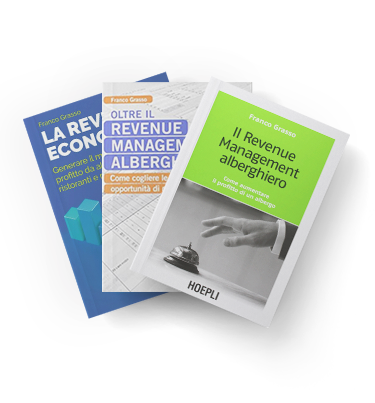Tour operator failure.
The world of tourism once again finds itself before the fall of a tour operating giant.
The Munich court has launched insolvency prceedings for FTI Touristik GmbH, the second biggest German tour operator after Tui and the third in Europe in turnover (4.1 billion Euro) and traffic volumes, with 7 million clients.
Franco Grasso, is – without fear of contradiction – one of Europe’s greatest revenue management experts, and intervenes with hard, incisive words on the failure of the tour operator, inviting hoteliers and sector operators to reflect on the dynamics leading to these crises.
“Another worldwide tour operating colossus has fallen and unfortunately it will not be the last. It is sad to read certain news and imagine how many economic microcosms are involved, how many people, entrepreneurs, emplyees and…clients.
The fact is that there’s no surprise in what’s happening (actually yes, the fact there’s surprise is a surprise).
The moment has come to open our eyes; otherwise there will be far more damage.
Why still trust a full / empty hotel – with all it represents personally, emotionally and economically – to Tour Operators, albeit just by name?
Why give so many rooms in allotment to the Tour Operators, at rates chosen by those who know the market as little as they know the hotel itself?
Shall we open our eyes and realise that there’s an on-line market regulating all the market logics?
Shall we understand that rates must be dynamic, based on accurate study, and made by those who’ve studied the hotel?
In our attempt to create an easy path for ourselves to follow, we’re complicating the processes enormously.
The solution is to hand
The Tour Operators should have understood long ago that, if they don’t follow the revenue management logics – linking their commerce with the on-line, dynamically-priced one – they have no future.
By now, the hoteliers should have understood that they cannot trust a Tour Operator to best manage the commercialisation of their facility.
It is the hotelier who should manages sales of his rooms, through careful revenue management policies, where he will of course contemplate spaces for the Tour Operators, but in ways he considers the most functional.
This is in the interests of both the hotels and the Tour Operators themselves.
Through rating and commercial awareness, the hotelier will be able to best contextualise the Tour Operator commercial channel, but it is not possible for the opposite to occur again.
The recipe for saving the Tour Operators and maximising the hotel’s income is written in my book from 2006 and I’ve been spreading it for nearly 20 years.
Completely ignored, of course.
Let us pay attention to how possible damage arising for hotels and tourism – with the relative income – may be devastating socially and economically.
Instead of igniting the flames with captious talk of overtourism, maybe we should try to understand the need to apply the common sense dictated by the market every day. Mistakes have been made. This is a perfect chance to treasure them and improve!”





